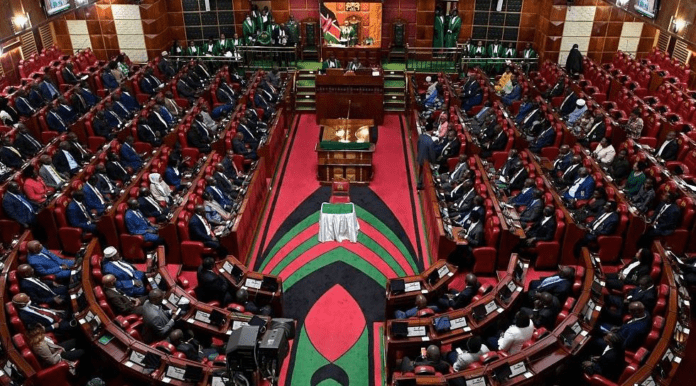The Equalisation Fund Board is under fire from the Finance and National Planning Committee of the National Assembly over alleged mismanagement and failure to monitor projects meant to uplift marginalised regions.
In a tense session held on Wednesday, Members of Parliament accused the board of funding projects that fall outside its constitutional mandate, providing inaccurate reports, and failing to deliver tangible results in disadvantaged areas.
Committee chairperson and Molo MP Kuria Kimani said the board had approved 310 projects, many of which were misaligned, duplicated, or poorly supervised—leading to a massive waste of public funds.
“Looking at the projects done, they are spread too thin and fall outside the Fund’s mandate. One is left to wonder whether this Fund has created any impact,” Kimani remarked.
MPs questioned the rationale behind funding activities such as cabro installation, street lighting, kitchen renovations, and construction of staff houses—non-core expenditures that deviate from the Fund’s key focus areas of water, health, electricity, and road access.
Kitui Rural MP David Mboni said the Equalisation Fund’s original goal—to bridge historical inequalities outlined in Sessional Paper No.10 of 1965—had been lost.
“The Board and Commission on Revenue Allocation (CRA) have diluted the objective of this Fund. Its purpose was to address deep-seated inequalities, but that has been sidelined,” Mboni said.
Lawmakers also raised red flags over inconsistent project costing, with Kimani highlighting stark disparities. He cited an example where a five-acre irrigation scheme was built at KSh2.6 million, while a nearby 10-acre project was allocated only KSh3.6 million.
“There are questionable projects like the construction of a staff house at Chalaluma dispensary in Lamu for KSh6.2 million. If projects are this arbitrary, how can we ensure value for money?” Kimani posed.
The committee further questioned the reliability of the board’s reporting, pointing to a bridge project in Turkana South. The board had marked it at only two per cent completion, but area MP John Ariko, who is also the committee’s vice chair, said it was actually 40 per cent done.
“This board is presenting misleading reports that cast doubt on the accuracy of its project data,” Ariko stated. “The information before us is wrong. The board is implementing projects that were never envisioned in law.”
When asked to explain the discrepancies, Board Chairperson Mahboub Mohamed distanced the agency from project selection, saying that was the role of the CRA. He attributed delays and underperformance to implementing agencies within national and county governments.
“The Equalisation Fund has no role in identifying beneficiaries or regional needs. That is the CRA’s work,” Mahboub said. “Unpredictable cash flows have created a backlog of pending bills and triggered audit questions.”
Mahboub revealed that although the Treasury has allocated KSh80 billion to the Fund, only KSh39.89 billion had been appropriated by June 2025, with just KSh15 billion released for actual use.
But the committee was not convinced, and the session ended abruptly after MPs rejected the board’s explanations and demanded verified documentation.
“If you continue to do all manner of projects—from installing cabros to building staff houses—will it serve the purpose for which the Equalisation Fund was created?” Kimani asked before adjourning the meeting.
Established under Article 204 of the Constitution, the Equalisation Fund is meant to improve the quality of basic services such as health, water, electricity, and roads in marginalised regions, bringing them to par with the rest of the country. It is funded by 0.5 per cent of the most recent audited national revenue as approved by Parliament.







